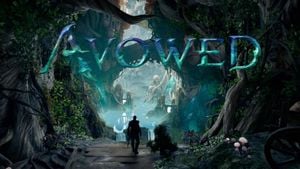The NHK drama "Guraburu" has taken Japanese television by storm, igniting fierce debates across social media platforms due to its provocative portrayal of historical figures and events from the Edo period. Airing its latest episode on November 9, 2023, "Guraburu" features the story of Tokugawa Iezasu and Matsudaira Takezen among its lineup of historical characters, sparking both interest and controversy.
This latest episode depicted Matsudaira Takezen presenting a costly proposal for the Nikko pilgrimage to Tokugawa Ieharu, who found himself caught between the mage's cautious budget concerns and the allure of tradition. The proposed pilgrimage suggested elaborate expenditures, leading Ieharu and his advisors to question whether such financial outlays were justified.
Viewers quickly took to social media, expressing their anger and disappointment over Matsudaira's arrogant demeanor throughout the episode. Descriptive phrases dominated the Twitter feeds, with fans calling his attitude "condescending" and "annoyingly smug." One viewer remarked, "Matsudaira is such an arrogant character, he truly embodies the worst of leadership principles!" Social media criticism was rampant, with comments like "he's so out of touch" and "the portrayal is simply infuriated." These reactions highlight the deep engagement the audience has with the characters and their stories.
Adding to the conversation, cultural commentators had their opinions about the series itself. They highlighted how "Guraburu" simultaneously reflects historical events and invites contemporary audiences to reinterpret these narratives. One scholar noted, "The show doesn't just entertain; it confronts us with historical truths, pushing us to examine how we view leaders both past and present." Such analysis suggests the drama serves as more than mere entertainment; it is viewed as commentary on the moral fabric of leadership through history.
Interestingly, viewer engagement has translated to strong ratings for the show. The sixth episode garnered impressive viewership numbers, achieving a household average rating of 10.2%, which reflecting the series' broad appeal.
While the criticisms may have stung, the discussions ignited by "Guraburu" are indicative of its success as it challenges viewers to think critically about the history being portrayed. The dialogue surrounding the drama is reflective of society's continuous struggle to reconcile its past with present interpretations. Many viewers recognize the importance of casting such figures with depth and complexity, urging creators to avoid one-dimensional characterizations.
Despite the fallout from viewer reactions, the lasting impact of "Guraburu" may serve to enrich future historical dramas. The conversations and critiques surrounding this series signify audiences' appetite for narratives steeped in history, yet willing to hold characters to account for their actions and choices.
Emerging from the shadows of past portrayals, the NHK drama stands as both an entertainment medium and as food for thought, propelling conversations about leadership's role across history from the Edo period to the present day. With its combination of tension, historical stakes, and lively viewer engagement, "Guraburu" presents modern audiences with the opportunity to connect history with contemporary narratives.



